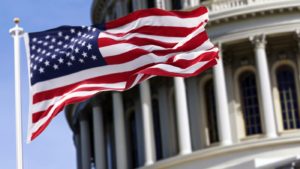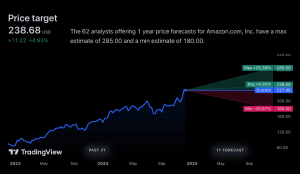I’m a long-term Trump supporter. I was an independent for many years, and went back and forth between the Democrats and Republicans for most of my adult life. I voted for Obama twice and Trump three times. I won’t go into all the reasons here, except to say I believe we needed a big change to the political system.
My question is a simple one: Can I wear a MAGA hat to work? I saw a couple of colleagues wearing Kamala pins before the election, but I have not seen one Trump hat. It doesn’t seem right to me. I wore my hat to a local diner and got a nice reaction from a couple of patrons, although the waitress didn’t seem impressed. I still tipped her.
Should I wear it to work — or leave it at home?
Third Time Lucky
Dear Third Time,
You may be seeking likeminded coworkers, but you could end up creating division instead.
Your question is a simple one that could have a complicated outcome. You can be fired for your political opinions. Check with your manager about political clothing and whether you are allowed to wear it to work. Many workplaces have a strict ban on bringing such outside issues to the workplace; they don’t want to foster discord among their employees, and they probably prefer not to win over some customers at the expense of alienating others.
The First Amendment protects freedom of speech, freedom of the press and freedom to assemble, among other rights — but it applies to government censorship and federal, state and local government employees. It does not apply to private-sector workers who make their opinions known on issues like Israel’s war on Gaza or on political issues closer to home..
Collectively, Title VII of the Civil Rights Act prohibits employment discrimination based on race, color, religion, sex — including gender identity, pregnancy and sexual orientation — and national origin. But federal law does not cover political speech or political affiliation. The Equal Employment Opportunity Commission enforces a range of federal laws protecting against job discrimination and harassment. (Read more on that here.)
Most workplaces don’t want to foster discord among their employees, and they probably prefer not to win over some customers at the expense of alienating others.
You’re not the only one who voted for both former President Barack Obama and President-elect Donald Trump. And you’re also not the only Trump voter who has, perhaps, felt freer to wear a MAGA hat than prior to, during and, especially, in the aftermath of November’s election. The former president last month became only the second Republican candidate to win the popular vote since George H.W. Bush in 1988. Given the scale of Trump’s victory, I understand your newfound confidence.
In July, Trump supporter and British political activist Raheem Kassam wrote on X: “I can’t believe it. I was at the old Four Seasons in NYC tonight. Super old school, high-end restaurant. Now called The Grille. Look it up. As I was leaving, I grabbed my MAGA hat and put it on and started to walk out and 3 tables just impromptu started cheering and clapping.”
For some, it has paid dividends to wear a Make America Great Again hat. Another Trump supporter, David Leatherwood, said on X that he wore a MAGA hat to a restaurant in St. Petersburg, Fla. — which, unlike New York, is in a state that overwhelmingly voted Republican in November. He said a woman told him that she loved his hat and, he added, “When we got to the register, the woman had paid for both of our meals.”
It’s not just a hat
But back to your question. It’s not just a hat, in the same way that a Kamala Harris pin is not just a pin. It’s a statement, and, as the fashion writer Derek Guy says, our clothing is a form of language that telegraphs a cultural story and, in some cases, a political one. For example, a waxed-cotton Barbour jacket “has always been vaguely conservative coded,” he notes, especially in Western Europe. (You may see these jackets worn by members of the British royal family.)
Whether we acknowledge it or not, we tell people an awful lot about ourselves by what we wear, culturally, personally and, yes, sometimes politically. “Most of all, when there are so many dress languages, it can be hard to figure out how to choose a language and then eloquently communicate in that language,” Guy says. “All of these are real issues, but on balance, I think the world is a better place, aesthetically and socially.”
Political paraphernalia also means different things to different people. For you, a MAGA hat could mean more secure borders, but to someone on the opposite end of the political spectrum, it could represent an anti-immigration stance. Similarly, for you it may represent Trump’s survival after he was grazed by a would-be assassin’s bullet, but to a coworker it could bring to mind that the president-elect is, whether you agree with the verdict or not, a convicted felon.
What do you hope to achieve by wearing your MAGA hat around the office? A rewarding political debate over the watercooler? (Good luck with that.)
There’s a time and place to wear your heart and politics on your sleeve, and the workplace isn’t always it. Nearly half of all U.S. employees (47%) say they’re uncomfortable discussing politics at work, according to a survey carried out in September by Gartner. Respondents said they’ve witnessed employees being called offensive names (6%), treated unfairly (6%), avoided by colleagues (10%) and experiencing an abrupt end to a conversation (11%) in response to political views.
What do you hope to achieve by wearing your MAGA hat around the office? A rewarding political debate over the watercooler? (Good luck with that.) The chance to win colleagues over, change minds, or discover a likeminded political peer group? The opportunity to publicly stand by your political beliefs? Whether you’re wearing a Harris-Walz campaign T-shirt or a MAGA hat, you may end up inviting more trouble than you have bargained for.
Even if wearing political clothing to work does not get you fired or disciplined, it may impact your life — and finances — in more nuanced ways. What if your boss is a diehard Democrat and you are a diehard Republican, or vice versa, and the next promotion opportunity comes down to you and another person who has kept their own political views private? Guess which way the pendulum might swing.
Don’t jeopardize your paycheck or workplace harmony. You would miss either one after it’s gone.
You can email The Moneyist with any financial and ethical questions at qfottrell@marketwatch.com, and follow Quentin Fottrell on X, the platform formerly known as Twitter.
The Moneyist regrets he cannot reply to questions individually.
Previous columns by Quentin Fottrell:
Check out The Moneyist’s private Facebook group, where members help answer life’s thorniest money issues. Post your questions, or weigh in on the latest Moneyist columns.
By emailing your questions to The Moneyist or posting your dilemmas on The Moneyist Facebook group, you agree to have them published anonymously on MarketWatch. By submitting your story to Dow Jones & Co., the publisher of MarketWatch, you understand and agree that we may use your story, or versions of it, in all media and platforms, including via third parties.
This post was originally published on Market Watch






